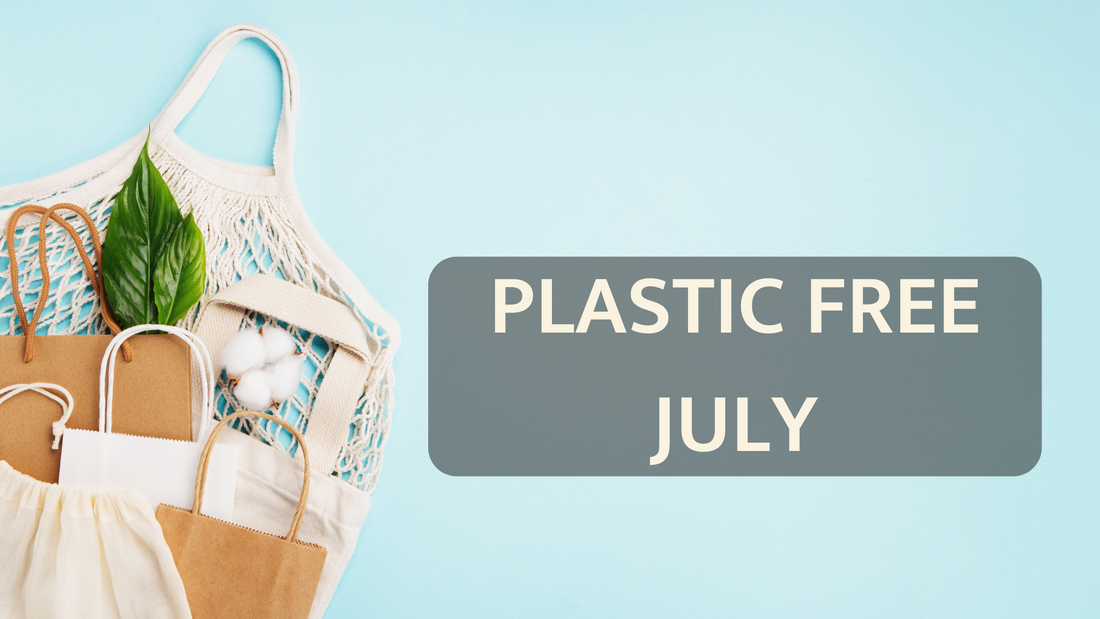
As July rolls around, it’s time to join a fantastic global movement aimed at reducing plastic waste: Plastic Free July. This initiative started back in 2011 by the Plastic Free Foundation in Australia and has since grown into a worldwide effort. Let’s dive into what Plastic Free July is all about, how you can get involved, and the positive changes it can bring to your life and the planet.
What’s Plastic Free July All About?
Plastic Free July is a global initiative that encourages people to reduce their plastic waste. It's a brilliant opportunity to reassess our habits and make more mindful choices. Think about all those single-use plastics we encounter every day—plastic bags, straws, bottles, and packaging. By swapping these out for sustainable alternatives, we can significantly reduce our footprint and protect our precious planet.
Why Should We Care About Plastic Pollution?
The reason behind Plastic Free July is pretty compelling once you look at the facts:
1. Ocean Pollution: Around 8 million metric tons of plastic end up in our oceans every year. This harms marine life and ecosystems and could result in more plastic than fish (by weight) in the oceans by 2050.
2. Microplastics: Plastic doesn’t decompose; it breaks down into tiny pieces called microplastics. These particles end up in our water, soil, and even the air we breathe.
3. Resource Depletion: Making plastic uses a lot of fossil fuels, which increases carbon emissions and worsens climate change.
4. Wildlife Harm: Animals often mistake plastic for food, leading to serious health problems or death. This not only affects individual species but entire ecosystems.
How You Can Participate in Plastic Free July
Taking part in Plastic Free July is about making simple, thoughtful choices to cut down on plastic use. Here’s how you can get started:
1. Ditch Single-Use Plastics: Identify the single-use plastics you often use and find alternatives. Swap out plastic bags, straws, bottles, and cutlery for reusable versions.
2. Bring Your Own: Carry a reusable water bottle, coffee cup, shopping bags, and containers. Many places even offer discounts for bringing your own!
3. Shop Wisely: Opt for products with minimal or no plastic packaging. Buy in bulk when you can and support brands that use sustainable packaging.
4. Home and Personal Care: Switch to items like soap bars, shampoo bars, and toothpaste tablets. They often come with little to no packaging and are better for the environment.
5. Share the Journey: Use social media to share your Plastic Free July experience with the hashtag #PlasticFreeJuly. Encourage friends and family to join you.
Benefits of Going Plastic-Free
Living with less plastic has lots of perks beyond just helping the environment:
1. Healthier Choices: Many plastic-free products are also free from harmful chemicals.
2. Save Money: While some reusable items might cost more upfront, they save you money over time since you won’t need to keep buying disposables.
3. Community Connection: Being part of movements like Plastic Free July connects you with others who share your goals and values.
4. Empowerment and Advocacy: Taking steps to reduce plastic empowers you to advocate for bigger changes, like better policies and more sustainable business practices.
Making a Lasting Change
Plastic Free July is more than just a month-long challenge—it’s a chance to make lasting changes in your life. By cutting down on plastic, you’re not only helping the planet but also inspiring others to do the same. Every small action adds up, leading to a significant impact. Together, we can create a future where nature thrives and sustainable living is the norm.
This July, take the pledge to go plastic-free. Every effort counts towards a greener, cleaner world. Join the movement, make a difference, and let’s work together to eliminate plastic pollution for good!

